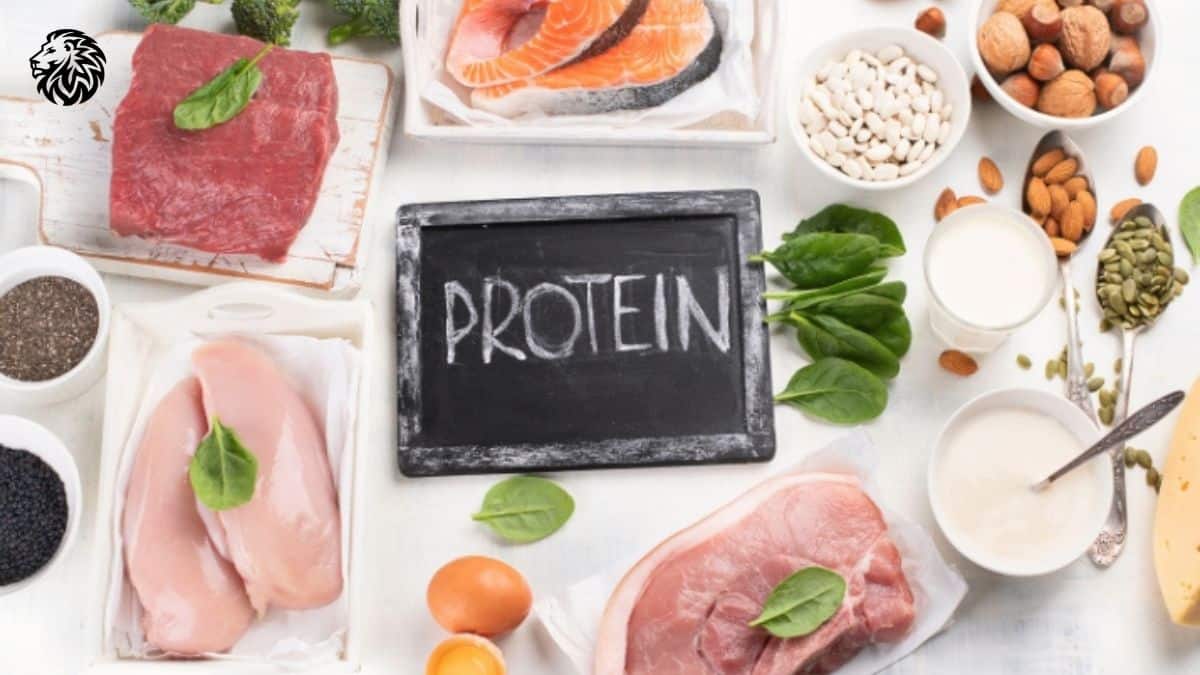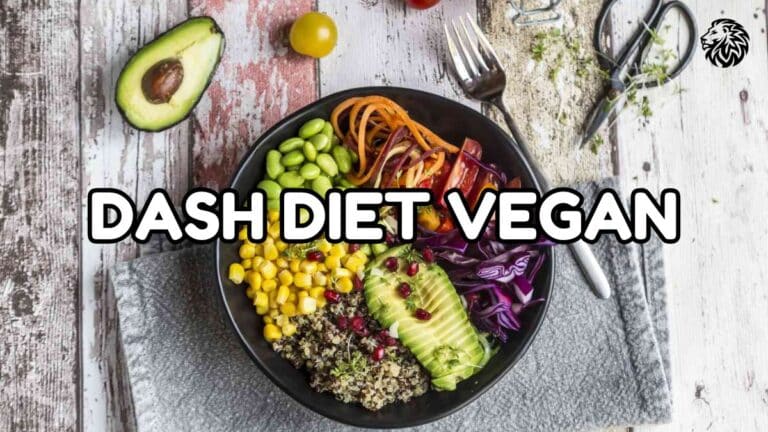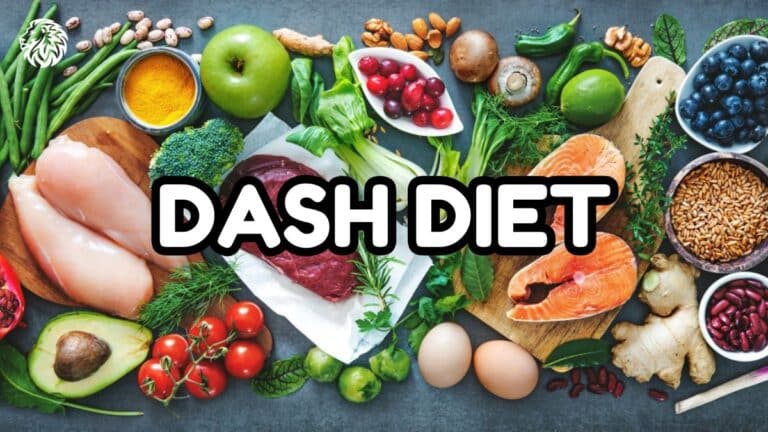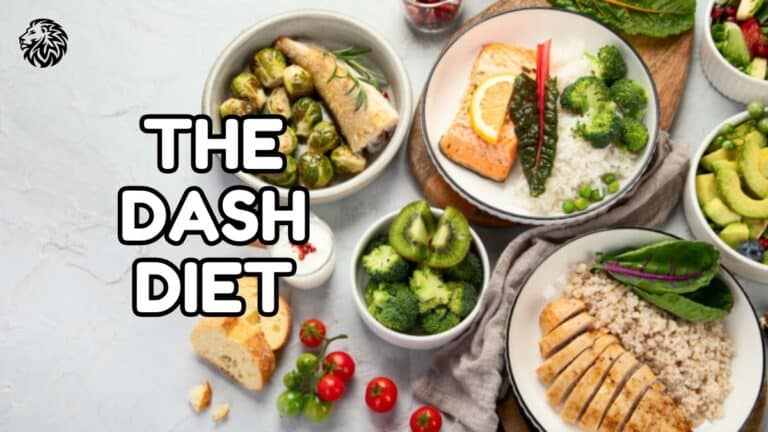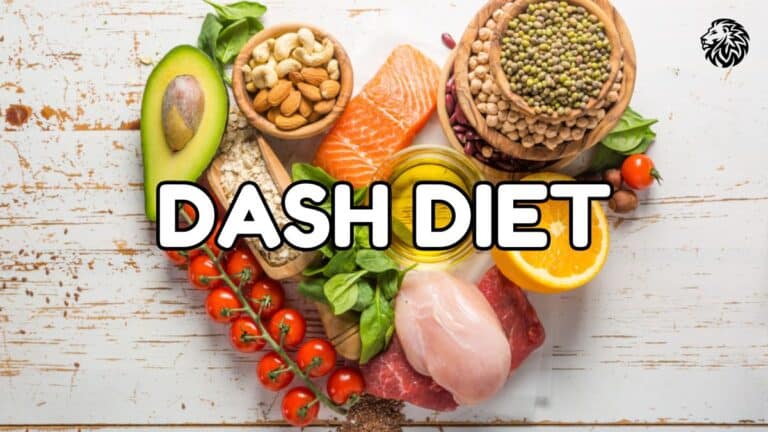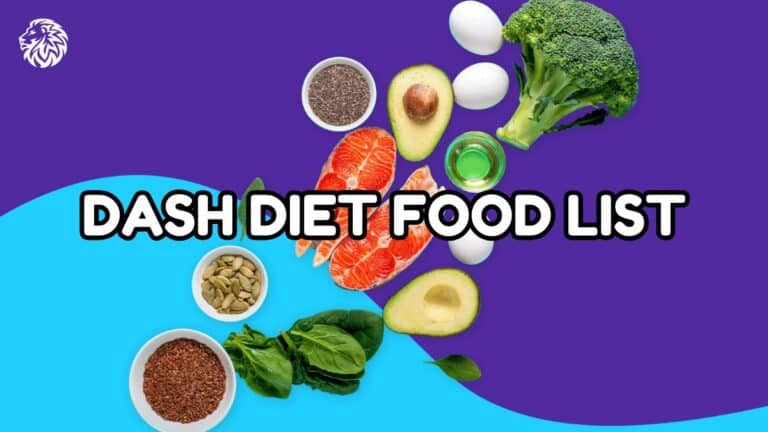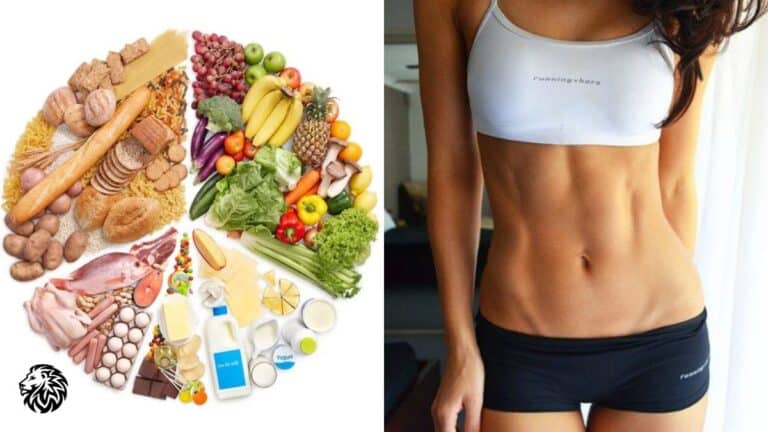The DASH (Dietary Approaches to Stop Hypertension) diet is widely known for its heart health benefits and its role in reducing high blood pressure. One of the essential components of the DASH diet is protein, which plays a significant role in maintaining muscle mass, repairing tissues, and supporting overall body functions. But how much protein should you be eating on the DASH diet, and what are the best sources to incorporate?
In this post, we’ll dive into how much protein the DASH diet recommends, why it’s important, and how you can meet your protein goals while following this healthy eating plan.
Protein in the DASH Diet: An Overview
The DASH diet emphasizes a balanced intake of nutrients, including proteins, carbohydrates, fats, vitamins, and minerals. The focus is on whole foods that are low in sodium and rich in essential nutrients like potassium, magnesium, calcium, and, of course, protein.
The recommended protein intake on the DASH diet typically aligns with general dietary guidelines. The DASH diet encourages 18% of daily calories to come from protein. For someone consuming 2,000 calories a day, this equates to roughly 90 grams of protein. However, individual protein needs can vary based on factors like age, activity level, and specific health goals.
Let’s break it down further.
General Protein Guidelines for Adults
In general, the recommended dietary allowance (RDA) for protein for the average adult is 0.8 grams per kilogram of body weight. This means that if you weigh 68 kg (or around 150 pounds), you would need approximately 55 grams of protein per day. However, since the DASH diet encourages a higher intake of lean proteins, individuals following this plan may consume more than the minimum.
Here’s how the math works:
- For a 2,000-calorie DASH diet, 18% of calories from protein equals 90 grams of protein per day.
- For a 2,500-calorie DASH diet, 18% of calories from protein equals 113 grams of protein per day.
This amount of protein is sufficient for most people to maintain muscle mass, promote satiety, and support overall health.
Why Protein is Important in the DASH Diet
While the DASH diet is often recognized for its benefits in lowering blood pressure, it also emphasizes maintaining a balanced nutrient profile. Protein is an essential macronutrient that contributes to a variety of functions in the body, including:
- Muscle Maintenance and Growth: Protein provides the building blocks (amino acids) needed to repair and build muscles. This is especially important as you age or if you engage in physical activity.
- Metabolic Health: Protein can help regulate metabolism, keeping energy levels stable throughout the day.
- Satiety: A protein-rich meal can help you feel full for longer, which can prevent overeating and support weight management.
- Heart Health: Choosing lean proteins, like fish, poultry, and plant-based sources, aligns with the DASH diet’s goals of reducing unhealthy fats and improving heart health.
Meeting Your Protein Needs on the DASH Diet
Now that you know how much protein the DASH diet recommends, let’s explore some of the best protein sources to include in your diet.
Lean Meats and Poultry
Chicken, turkey, and lean cuts of beef or pork are excellent sources of protein. These options are low in saturated fats, which is important for heart health. Try to stick to skinless poultry and trim visible fat from meats to keep them lean.
- Serving size: A 3-ounce portion of cooked chicken breast contains about 26 grams of protein.
Fish and Seafood
Fish is a staple in the DASH diet because of its high protein content and heart-healthy omega-3 fatty acids. Fatty fish like salmon, mackerel, and tuna are excellent for reducing inflammation and promoting cardiovascular health.
- Serving size: A 3-ounce portion of cooked salmon provides about 22 grams of protein.
Eggs
Eggs are a versatile and affordable source of protein. While they do contain cholesterol, studies have shown that moderate egg consumption is not harmful for most people. If you are concerned about cholesterol, you can opt for egg whites, which are high in protein but free of fat and cholesterol.
- Serving size: One large egg contains about 6 grams of protein.
Dairy
Low-fat or fat-free dairy products are encouraged on the DASH diet for their protein, calcium, and vitamin D content. Options like Greek yogurt, cottage cheese, and milk are excellent sources of protein.
- Serving size: A 6-ounce serving of Greek yogurt contains about 15 grams of protein.
Plant-Based Protein
For those looking to incorporate more plant-based foods into their diet, the DASH plan also recommends sources like beans, lentils, tofu, and quinoa. These options are rich in protein and fiber, making them perfect for promoting heart health and supporting digestion.
- Serving size: A half-cup serving of cooked lentils contains about 9 grams of protein.
Nuts and Seeds
Nuts and seeds, such as almonds, sunflower seeds, and chia seeds, offer a good mix of protein, healthy fats, and fiber. While they are more calorie-dense, they provide long-lasting energy and essential nutrients.
- Serving size: One ounce of almonds contains about 6 grams of protein.
Incorporating Protein into Your DASH Diet Plan
To ensure you are meeting your protein needs, aim to include a source of protein with every meal. Here are a few ideas:
- Breakfast: Start your day with Greek yogurt topped with nuts and seeds, or enjoy scrambled eggs with whole-grain toast.
- Lunch: Make a hearty salad with mixed greens, grilled chicken, and beans, or try a quinoa bowl with tofu and veggies.
- Dinner: Opt for baked salmon with steamed vegetables and a side of lentils or enjoy a stir-fry made with shrimp and brown rice.
- Snacks: Keep protein-rich snacks on hand, such as hard-boiled eggs, a handful of almonds, or a protein smoothie made with low-fat milk and fruit.
Balancing Protein with Other Nutrients
While protein is essential, it’s important to remember that the DASH diet is about balance. Along with protein, focus on getting plenty of fruits, vegetables, whole grains, and low-fat dairy. These foods provide the fiber, vitamins, and minerals that support heart health and overall wellness.
Adjusting Protein Intake Based on Your Needs
Everyone’s nutritional needs are different. If you are highly active or looking to build muscle, you may need to adjust your protein intake. Similarly, older adults or individuals recovering from illness may benefit from slightly higher protein levels to prevent muscle loss. If you’re unsure how much protein you should be eating, it’s always a good idea to consult with a healthcare provider or dietitian.
Conclusion
On the DASH diet, it is recommended that around 18% of your daily calorie intake comes from protein. For most people, this equals approximately 90 grams of protein per day on a 2,000-calorie diet. By incorporating lean meats, fish, eggs, dairy, and plant-based proteins, you can easily meet your protein goals while enjoying the heart health benefits of the DASH plan.
Whether you’re trying to lower your blood pressure, maintain muscle mass, or simply eat a balanced diet, ensuring you get enough protein is key to your success on the DASH diet.
References
- Sacks, F. M., Lichtenstein, A. H., Wu, J. H. Y., Appel, L. J., Creager, M. A., Kris-Etherton, P. M., Miller, M., Rimm, E. B., Rudel, L. L., Robinson, J. G., Stone, N. J., & Van Horn, L. V. (2017). Dietary fats and cardiovascular disease: A presidential advisory from the American Heart Association. Circulation, 136(3), e1-e23. https://www.ncbi.nlm.nih.gov/pmc/articles/PMC5439361/
- Harvard Health Publishing. (2019, July 25). The DASH diet: A great way to eat foods that are healthy and delicious. Harvard Health Blog. https://www.health.harvard.edu/blog/the-dash-diet-a-great-way-to-eat-foods-that-are-healthy-and-delicious
